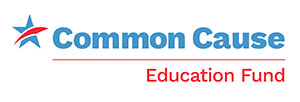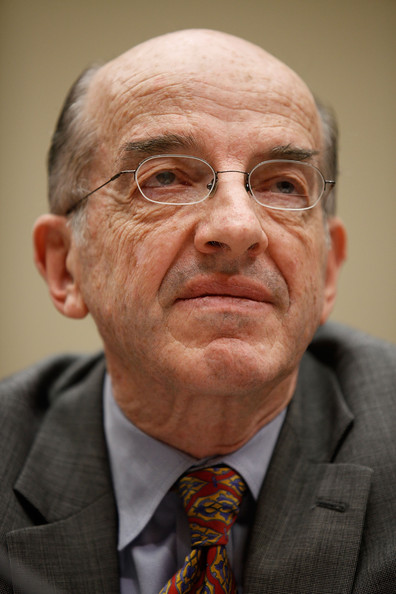The Summer of Our Discontent

Tuesday, July 7, 2020
Digital Beat
The Summer of Our Discontent

The summer of our discontent steams more hotly by the day: a deadly and surging pandemic taking more than 130,000 lives across the nation; an economy bleeding millions of jobs and livelihoods and denying basic subsistence to many; mass protests assembling in streets nationwide to demonstrate against systemic racism and police brutality; and dysfunctional government at all levels and in every branch from White House to Congress to courthouses to statehouses and often beyond.
Can we handle it? Can America conquer its ills and overcome? Can our democracy itself deal with its discontents? The questions are clear; the answers, not so much. We've overcome bad times before, some will say, and that's true. But that is no guarantee we can do it again. Just as the COVID-19 pandemic presents deadly challenges, so too do the many barriers we have permitted to be placed in democracy's way.
Throughout millennia, philosophers and savants have questioned the staying power of democracy. Plato believed no one system of government could long survive and warned that democracy is incapable of controlling itself, so it morphs eventually and inevitably into tyranny. No fan there! His pupil Aristotle thought democracy was unnatural and inferior to enlightened monarchy. No small "d" democrat there either! So representative democracy is recent, not ancient, and its successful practice has always been, at best, a work in progress. Except now the progress could stop.
We have played fast and loose with the enabling tools of democratic government. We've just about taken the "representative" out of representative democracy. Not that it was ever close to fully representative, but now the powers-that-be are shrinking its foundations instead of expanding them. The chances of holding a credible democratic election four months hence get slimmer by the day. Even more roadblocks are being erected to keep people from registering and casting ballots. Voters are illegitimately purged from the rolls by bought-and-paid-for state legislatures, and this malfeasance is upheld by courts that often answer to entrenched interests rather than to democracy's imperatives. Polling places are shut down, voting-by-mail is discouraged, and there will likely be bad actors and even armed vigilantes at many polling places in November to intimidate already-frightened citizens.
In a successful democracy, political participation should be accompanied by economic participation. Most of us are versed in the realities of the 1% and understand that the fruits of our economy are hugely and inequitably distributed. And we understand the egregious influence that special interest money wields in the halls of political power. No need to repeat my take on that in this essay, other than to note that maldistribution of wealth and power suck the very lifeblood from democracy.
In a successful democracy, citizens are also well-informed so they can make knowledgable decisions about the future of their government. For decades our country's news and information infrastructure has been decimated by a few media giants who have gobbled up community news outlets, fired reporters en masse, and shuttered hundreds of newsrooms across the land. Fact-based investigative journalism nowadays is the exception and seldom the rule. Add to the carnage that consolidation has inflicted on the media all the misinformation and disinformation that a few giant online platforms flood us with, and it's no mystery why so many of us are suffering a news and information shortfall. The COVID-19 pandemic has wreaked further havoc on the information gap by destroying thousands more news jobs. The United States has lost over half its newsroom employees since the early 2000s!
Our democracy is just plain out-of-kilter, and the kicker is there are no guarantees of its survivability. Many still claim American exceptionalism, but sometimes the exceptionalism is more negative than positive. A look at where we rank among the nations of the world when it comes to democracy suggests that we are heading in the wrong direction. The respected Economist Intelligence Unit has published a "Democracy Index" since 2006, ranking the state of democracy in 167 nations of the world. Your country and mine now comes in at Number 25, behind such nations as Norway, Sweden, New Zealand, Australia, Germany, the UK, Mauritius, and South Korea. We don't even make it into the category of "full democracies" — instead we are consigned to the "flawed democracies" list. What a stark and brutal message!
In my most recent blog, "America at the Crossroads," I closed by writing that We, the People, can nevertheless gather at this critical crossroads and still chart a workable, democracy-building path ahead. Am I meeting myself coming around the corner? How can I reconcile the harsh realities outlined above with anything approaching hope for the future?
It can be done. It must be done. Not all at one crack — there is no easy way out of the hole we're in. But even as the clouds have been lowering, opportunity beckons. The ongoing protests of the past two months mirror the growing concerns of millions of people about the injustices of racism, the excesses of police power, the dysfunction of government, the unchecked and unearned power of special interests, and a hunger to inform and organize ourselves for a better tomorrow. We can build on this momentum, keep the protests going and growing right up through the elections in November. And then we must vote.
If we protest but fail to vote, we haven't protested enough. That means every eligible voter must cast a ballot. We cannot afford another close, contested election. We need an overwhelming vote that elects leaders across all levels and branches of government who will uphold the core values necessary for a twenty-first century democracy and who will represent the needs and interests of all our communities, particularly the most marginalized. That's a steep climb given the obstacles cited above, but it's also absolutely essential. There is a majority out there that wants real change. It's time for that majority to speak now, mobilize now, vote now, and change America's course now.
Such a house-cleaning is only the first step in democracy's reform. And it is only the first step of civic engagement. It can create the opportunity for change, but by itself guarantees no miraculous outcomes. So the next step is to roll up our sleeves and get about the hands-on job of true reform — guaranteeing the freedom of future elections, redistricting our electoral maps so that every person's vote counts equally, breaking up job-killing monopolies, ending the dominance of big money in our campaigns and in our nation, and finally, finally, finally confronting America's original sin of racial injustice so that as a nation we will treat our brothers and sisters like...brothers and sisters.
Real reform is never top-down, it's bottom-up. It doesn't come as a gift from beneficent elected officials in their wood-paneled offices. It comes from demands at the grassroots, organizing at the grassroots, protesting at the grassroots, and voting at the grassroots. What we get out of the effort will mirror what we put into it.
In his great song "Lonesome Valley," Woody Guthrie told us that nobody else can walk the road to glory for you, you gotta walk it by yourself. So, too, on the road to democracy. Nobody else gonna walk it for us, we gotta walk it by ourselves. That's the price, and the glory, of democracy.
Michael Copps served as a commissioner on the Federal Communications Commission from May 2001 to December 2011 and was the FCC's Acting Chairman from January to June 2009. His years at the Commission have been highlighted by his strong defense of "the public interest"; outreach to what he calls "non-traditional stakeholders" in the decisions of the FCC, particularly minorities, Native Americans and the various disabilities communities; and actions to stem the tide of what he regards as excessive consolidation in the nation's media and telecommunications industries. In 2012, former Commissioner Copps joined Common Cause to lead its Media and Democracy Reform Initiative. Common Cause is a nonpartisan, nonprofit advocacy organization founded in 1970 by John Gardner as a vehicle for citizens to make their voices heard in the political process and to hold their elected leaders accountable to the public interest. Learn more about Commissioner Copps in The Media Democracy Agenda: The Strategy and Legacy of FCC Commissioner Michael J. Copps
The Benton Institute for Broadband & Society is a non-profit organization dedicated to ensuring that all people in the U.S. have access to competitive, High-Performance Broadband regardless of where they live or who they are. We believe communication policy - rooted in the values of access, equity, and diversity - has the power to deliver new opportunities and strengthen communities.
© Benton Institute for Broadband & Society 2020. Redistribution of this email publication - both internally and externally - is encouraged if it includes this copyright statement.
For subscribe/unsubscribe info, please email headlinesATbentonDOTorg






